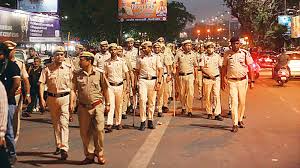Protests, blockades on Assam-Arunachal road over killing of 2 youths from Mising tribe

Tensions ran high on the Assam–Arunachal Pradesh border after the recent killing of two Mising tribal youths. On July 15, members of the Mising community blocked roads at seven key border points. These included Banderdewa, Hollongi, Roing, Namsai, Likabali, Silapathar, and Bhalukpong.
Three major Mising organizations led the protests—the Takam Mising Porin Kebang (TMPK), Mising Mimag Kebang (MMK), and Takam Mising Mime Kebang (TMMK). They demanded quick justice for the victims and safety guarantees for tribal workers.
Two Killings in Less Than a Month
The first case occurred on June 18 in Chimpu, near Itanagar. Prabash Doley, 22, was allegedly beaten to death by Tai John after a dispute. Police arrested John soon after and filed a case under the Bharatiya Nyaya Sanhita.
On July 13, another youth from the Mising community, Shankar Pegu, 29, was killed in Roing. He had been working as a daily wage labourer. Police say his employer, Tadar Bhai, shot him after an argument. Tadar Bhai later surrendered. Investigators recovered a firearm and sent it for forensic testing.
Both killings shook the Mising community. The close timing of these two deaths deepened public anger.
Protesters Make Four Key Demands
Mising groups submitted memorandums to local authorities. Their main demands were:
- Speedy and fair trials in both murder cases
- Compensation for the victims’ families
- Strong safety measures for tribal workers in Arunachal
- A permanent border grievance redressal system
TMPK leaders said these deaths showed a deeper problem. Tribal workers often face unsafe conditions and mistreatment across state lines. One spokesperson warned that more protests would follow if the government failed to meet their demands.
State Governments Respond
On the evening of July 15, both Chief Ministers—Himanta Biswa Sarma (Assam) and Pema Khandu (Arunachal Pradesh)—intervened. They promised quick legal action and support for the victims’ families. They also appealed to the protestors to maintain peace.
Following these assurances, the Mising organizations temporarily suspended the blockades. They made it clear this was not a permanent decision. TMPK said it would wait for a joint meeting with state officials and community leaders, expected within three days.
A Pattern of Border Tensions
These incidents are not new. Mising families often work in Arunachal for better wages in farming or construction. But they face serious risks, including violence and wage theft. There are no clear systems to protect them or address grievances across state borders.
Districts like Dhemaji and Lakhimpur in Assam share long, porous borders with Arunachal. In these areas, a lack of coordination between local authorities often puts tribal workers at risk.
Human rights groups and student unions like the AASU have also raised concerns. They’ve called for a formal safety protocol and an independent board to resolve cross-border disputes.
Political Leaders and Civil Groups Join In
Leaders from different political parties spoke out. A Congress MLA from Dhemaji said the killings showed the state’s failure to protect its most vulnerable citizens. Assam’s Minister for Tribal Affairs promised justice and financial aid to the victims’ families.
Civil society also joined the movement. NGOs held candlelight vigils and press conferences. Social media saw hashtags like #JusticeForPrabash and #JusticeForShankar trending across the region.
These efforts have drawn attention to the systemic neglect faced by many tribal workers in northeastern India.
What Happens Next?
The state governments have made promises. Now, the Mising community awaits real action. They expect:
- Fast legal proceedings
- A full safety plan for workers
- Compensation for victims’ families
- Regular meetings between state officials and tribal groups
If these steps don’t happen soon, the TMPK has warned that protests may return. This time, they may be even larger.
Conclusion
The killings of Prabash Doley and Shankar Pegu have sparked one of the most organized tribal protests in recent years. These deaths highlight the dangers many face while seeking work in border regions. The temporary suspension of blockades shows the community’s willingness to engage—but their patience has limits.
For now, the road to justice lies in the hands of two state governments. What they do in the coming days will decide whether this crisis ends with peace or escalates into further unrest.






